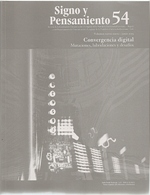Abstract
Book Review: Burrill, Derek. 2008. Die tryin’: videogames, masculinity, culture. New York: Peter Lang Publishing, Inc. isbn 978-1-4331-0242-4 (hardcover), isbn 978-1-4331-0091-8 (paperback).
Die tryin’: videogames, masculinity, culture is the 18th volume of the series Popular Culture – Everyday Life and is a reference book for readers interested in researching the interface between gender, videogaming and digital cultures. In contrast to other titles in the field focused on games research, the author crafts, with intelligible style, experiences of game playing combined with what he calls haptic theory (a materialist, political and metaphorical relationship of player to game). This approach is used to reveal how games function as cultural phenomena where through a visual/virtual medium, a game works as a game. The book is in five chapters. What follows is a brief overview that highlights the breadth of contexts and situations where masculinity is expressed and where males could survive or ‘die tryin’ manifesting boyhood.
This journal is registered under a Creative Commons Attribution 4.0 International Public License. Thus, this work may be reproduced, distributed, and publicly shared in digital format, as long as the names of the authors and Pontificia Universidad Javeriana are acknowledged. Others are allowed to quote, adapt, transform, auto-archive, republish, and create based on this material, for any purpose (even commercial ones), provided the authorship is duly acknowledged, a link to the original work is provided, and it is specified if changes have been made. Pontificia Universidad Javeriana does not hold the rights of published works and the authors are solely responsible for the contents of their works; they keep the moral, intellectual, privacy, and publicity rights.
Approving the intervention of the work (review, copy-editing, translation, layout) and the following outreach, are granted through an use license and not through an assignment of rights. This means the journal and Pontificia Universidad Javeriana cannot be held responsible for any ethical malpractice by the authors. As a consequence of the protection granted by the use license, the journal is not required to publish recantations or modify information already published, unless the errata stems from the editorial management process. Publishing contents in this journal does not generate royalties for contributors.


